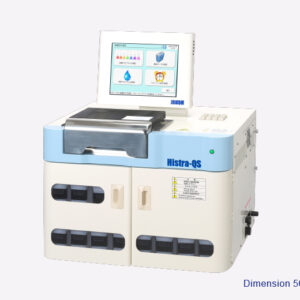Clinical Analytical Instruments
Showing all 5 results
- Clinical Analytical Instruments, Medical devices & Supplies, Professional Medical Devices
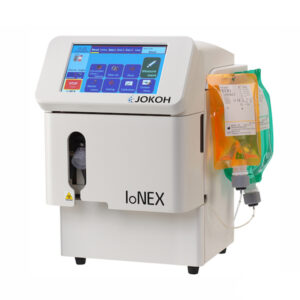
Electrolyte Analyzer IoNEX – JOKOH CO.LTD.
Clinical Analytical Instruments, Medical devices & Supplies, Professional Medical DevicesElectrolyte Analyzer IoNEX – JOKOH CO.LTD.
Measurement of electrolyte levels in blood
Direct method
Mode for measuring dialysate fluid concentration
Direct aspiration from sampling nozzles
Use of own-developed electrodesSKU: n/a - Clinical Analytical Instruments, Medical devices & Supplies, Professional Medical Devices
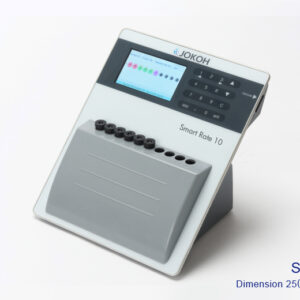
Erythrocyte Sedimentation Rate Analyzer Smart Rate Series – JOKOH CO.LTD.
Clinical Analytical Instruments, Medical devices & Supplies, Professional Medical DevicesErythrocyte Sedimentation Rate Analyzer Smart Rate Series – JOKOH CO.LTD.
Random access
Available for one by one test at any position.Compact & Stylish
Smart Rate 10: 2.6kg
Smart Rate 20: 2.7kg
Smart Rate 40: 3.0kgRapid measurement
Quick mode:
30 min value and 1hr value – 15 min working time
2 hr value – 45 min working timeLow biological risk
Our tube is vacuum tube with a sterilization.
No need to transfer samples and low risk for infection.SKU: n/a - Clinical Analytical Instruments, Medical devices & Supplies, Professional Medical Devices
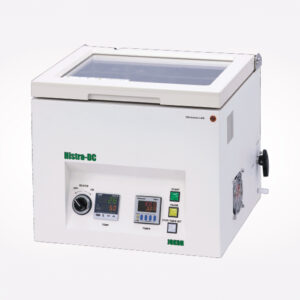
Pathological examination Rapid processor Histra-DC – JOKOH CO.LTD.
Clinical Analytical Instruments, Medical devices & Supplies, Professional Medical DevicesPathological examination Rapid processor Histra-DC – JOKOH CO.LTD.
The all-round system that can perform various processes such as decalcification, delipidation, and fixation.
Ultrasonic makes it possible to process decalcification, delipidation, and fixation by 1/2 to 1/6 hours of the conventional method.
SKU: n/a - Clinical Analytical Instruments, Medical devices & Supplies, Professional Medical Devices
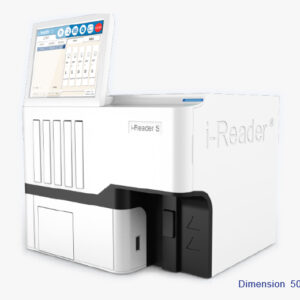
POCT Analyzer i-Reader S – JOKOH CO.LTD.
Clinical Analytical Instruments, Medical devices & Supplies, Professional Medical DevicesPOCT Analyzer i-Reader S – JOKOH CO.LTD.
Measurable 70 tests per 1 hour
Multiple test items
CRP, hs-CRP, PCT, CK-MB, MYO, cTn-I, BNP, F-BNP, NT-proBNP, D-dimer and SAA
Sample type:
Whole blood/ Peripheral blood/ Serum/ Plasma/Urine/ CSF…etc.SKU: n/a
Are you looking for a Clinical Analytical Instruments product?
When selecting Clinical Analytical Instruments for your company’s needs, there are several important points to consider during the comparison and evaluation process.
1. Quality and Performance
Evaluate the quality and performance of Clinical Analytical Instruments. Look for details on their accuracy, precision, sensitivity, and ability to deliver reliable results. Quality is paramount in clinical settings.
2. Cost and Value
Compare the costs of different Clinical Analytical Instruments. Consider the initial purchase price, ongoing operational costs (such as maintenance and consumables), and the value these instruments offer for your clinical applications.
3. Ease of Use
Assess the user-friendliness of the products. In a clinical environment, ease of use is crucial. Look for instruments with intuitive interfaces and minimal training requirements.
4. Maintenance and Support
Research the maintenance requirements and the level of technical support provided by the manufacturer. In clinical settings, timely maintenance and responsive support are essential for consistent and accurate results.
5. Compatibility and Integration
Check if the Clinical Analytical Instruments can seamlessly integrate with your existing clinical systems, including laboratory information systems (LIS) and electronic health records (EHR). Compatibility streamlines data management and reporting.
6. Data Handling and Reporting
Consider how the products handle, store, and report clinical data. Look for features that facilitate data interpretation, secure data storage, and customizable reporting capabilities.
7. Regulatory Compliance
Ensure that the instruments comply with relevant regulatory standards and certifications, such as FDA approval or CLIA certification, depending on your clinical applications and location.
